- Home
- David Dalglish
A Dance of Chaos: Book 6 of Shadowdance
A Dance of Chaos: Book 6 of Shadowdance Read online
“Despite everything, you still believed you were better,” Muzien said. The tip of the sword lowered, the cold steel gently touching the skin of his neck. Every maneuver, every thrust and parry, carried that arrogance. Deep down, you felt your skill would overwhelm mine. Do you understand your error, Watcher? You will never defeat me. You will never even challenge me. There is so much you can learn at my hands, but only if you submit. Only if you humble yourself to one who is greater. Otherwise…”
The tip drew a single drop of blood.
“Otherwise you will die at these hands, having learned nothing at all.”
Muzien withdrew the blade, sheathing it while walking away. He showed no fear at putting his back to Haern.
“Reconsider my offer,” the elf said as he dismissed the rest of his guild with a single hand gesture. “Despite this poor performance, I still feel you are the most qualified to inherit my legacy.”
“I won’t,” Haern said as he slowly rose to one knee. Blood trickled down his neck, and he had to grit his teeth against the continued pain from where Muzien kicked him. “I will never swear allegiance to someone like you.”
Muzien cast a glance over his shoulder.
“Then get out of my city,” he said. “You are unwelcome here.”
With that he sprinted down the street, black coat flapping behind him. Haern watched him vanish, and the fear in his gut continued to grow.
about the author
David Dalglish currently lives in rural Missouri with his wife, Samantha, and daughters Morgan and Katherine. He graduated from Missouri Southern State University in 2006 with a degree in mathematics and currently spends his free time teaching his children the timeless wisdom of Mario jumping on a turtle shell.
Find out more about David Dalglish and other Orbit authors by registering for the free monthly newsletter at www.orbitbooks.net.
BY DAVID DALGLISH
Shadowdance
A Dance of Cloaks
A Dance of Blades
A Dance of Mirrors
A Dance of Shadows
A Dance of Ghosts
A Dance of Chaos
Shadowdance short fiction
Cloak and Spider (e-only novella)
COPYRIGHT
Published by Orbit
ISBN: 9781405530026
All characters and events in this publication, other than those clearly in the public domain, are fictitious and any resemblance to real persons, living or dead, is purely coincidental.
Copyright © 2015 by David Dalglish
Excerpt from Blood Song by Anthony Ryan
Copyright © 2011 by Anthony Ryan
The moral right of the author has been asserted.
All rights reserved. No part of this publication may be reproduced, stored in a retrieval system, or transmitted, in any form or by any means, without the prior permission in writing of the publisher.
The publisher is not responsible for websites (or their content) that are not owned by the publisher.
Orbit
Little, Brown Book Group
100 Victoria Embankment
London, EC4Y 0DY
www.littlebrown.co.uk
www.hachette.co.uk
Contents
About the Author
By David Dalglish
Copyright
Dedication
Maps
Prologue
Chapter 1
Chapter 2
Chapter 3
Chapter 4
Chapter 5
Chapter 6
Chapter 7
Chapter 8
Chapter 9
Chapter 10
Chapter 11
Chapter 12
Chapter 13
Chapter 14
Chapter 15
Chapter 16
Chapter 17
Chapter 18
Chapter 19
Chapter 20
Chapter 21
Chapter 22
Chapter 23
Chapter 24
Chapter 25
Chapter 26
Chapter 27
Chapter 28
Chapter 29
Chapter 30
Chapter 31
Chapter 32
Chapter 33
Epilogue
A Note from the Author
Read an Extras from Blood Song
To you loyal readers,
who have allowed me to live a dream
PROLOGUE
Into the secluded shrine below Palace Thyne walked Muzien Ordoth, and he was pleased to see he was not alone. He’d worried that the high priest of Celestia would be afraid to meet with him in such a clandestine manner, or worse, deem such a meeting beneath him. They met in a place long forgotten, accessible only through ancient tunnels cut into the granite beneath the palace. The shrine itself was lit with forever-burning torches that produced no smoke, their yellow light reflecting off the emerald walls.
“You should have been here before me, kneeling in prayer to our goddess,” said Varen Dultha, rising from his knees before the statuette of Celestia that rested atop the oaken altar. When he turned, his smug distaste tested the limits of Muzien’s patience, and control. “But then again, you’ve never been much for prayers and worship, have you?”
“I do not appreciate having my faith questioned,” Muzien said. “My loyalty to the goddess has not wavered once over this past decade.”
“I find that hard to believe,” Varen said. “Living among humans? Trading with them? Keeping many in your employ? The goddess commanded us to watch over them, guide them, and remain neutral in their affairs if they would not listen. Pray tell me, how were you doing Celestia’s work there in Mordeina?”
Muzien took in a deep breath, then slowly let it out. He needed to remain calm, and not let his disagreements with the high priest ruin all he’d done. In the secret records of their people, he would be called the savior of their city, perhaps their entire race. What did a few insults to his pride matter compared to that? But before he answered, he walked past Varen and put a hand atop the nude statuette. It was of their goddess, arms raised above her head, mouth open. Carefully carved to represent the delicate nature of balance, she could have been bound and in pain, or finding pleasure in freedom. Often the viewer’s mood was what was reflected back, a subtle point Muzien wished more elves would understand. Above the statuette, carved into the emerald and filled with gold, was a four-pointed star, the fabled form Celestia had taken when coming down to speak with the brother gods before their war hundreds of years ago. It was as symbolic as it was historical, for that same star often represented the sun, showcasing the duality of the goddess, her watchful eye in both day and night.
After whispering a prayer for guidance, all while fully aware Varen impatiently waited, Muzien crossed his arms over his chest and met the stare of the priest. Varen was slender, even for an elf, his long hair so white it approached silver. He was young, nearly as young as Muzien. The two had risen in power together over the last century, but it had been Varen who won the position of high priest, the youngest elf ever to have done so. The wound to Muzien’s ego had taken years to heal, the bleeding halted only when he’d realized there were better ways to protect his people than from within the isolated halls of their temples.
“I do Celestia’s work by protecting her people,” Muzien said.
“Are her people in danger?”
Muzien’s jaw clenched tight, grinding his teeth.
“You’re no fool, Varen,” he said. “The humans’ temperament toward us has worsened drastically over the past twenty years. They fear us now, that fear bordering on the insane. In the
ir cities, men and women preach hatred toward us, a hatred so primal and raw no peaceful solution will ever suffice.”
Varen’s eyes narrowed.
“Is that why you’ve pulled me down to this forgotten place?” he asked. “To insult my diplomats before they may even speak a word?”
Muzien shook his head. Conflict between the races was growing; everyone could see that. Over the past year, as a way to counter the seemingly inevitable, Varen had championed an initiative to send dozens of trained diplomats to permanently live in Mordeina, the capital city of the human nation of Mordan. But Muzien had beat them there by a decade, and he knew the futility of such an attempt. His voice was absent during the debates, for he had no time for such things. He had a war to prevent.
“Your diplomats will be made to wait at the gates,” Muzien said, stepping closer to Varen. “After a week or so, they’ll be allowed in, only to be met with vicious crowds. They’ll be cursed at, spat at. Little boys and girls will hurl stones at their heads. Whatever home you think they’ll stay in will be burned to the ground. Should they go to speak with the king, they will be denied nine times out of ten, and whatever audience they find will be brief, and spent listening to the king inform us of our failures and deviousness. This anger the humans feel, it is a sickness, without base or merit or reason. It’s founded on one thing, Varen: fear.”
“If all this is true,” asked Varen, “then how have you lived there so long?”
“Because I want them to fear me.”
Muzien could feel the conversation slipping away from him, so before the priest responded he pressed on, letting his anger fuel his words.
“Listen well, Varen,” he said. “You know war is coming, as sure as the rising sun. It is only a matter of time before the humans raise their banners and descend upon our forests. They’ll burn every tree to ash if they must to satisfy their blood lust. If we don’t do something to prevent it, our people will suffer terribly.”
For once that smug look faded, revealing a very tired, frustrated Varen.
“Of course I know it,” he said. “But too many consider the humans as curiosities to be ignored, not feared. They see the borders of our forest as impenetrable. To convince them to permanently station diplomats in Mordeina took more effort than you can imagine. Damn it, Muzien, it is easier for me to find an elf eager for war than one who will accept mankind as a legitimate danger.”
Muzien reached out, put a hand on Varen’s shoulder. He tried to remember a time when he’d considered the elf a friend. It felt like a different life, and a gulf of blood and coin lay between.
“There’s still hope,” Muzien said, and he felt his heart speeding up. This was it, the culmination of his plan. “In Mordeina, I have formed a guild of men and women loyal to my name. They’re bound by greed and ambition, and for that alone they are both predictable and reliable. I’ve dipped my fingers into every bit of trade, particularly the vices their kings and queens have ruled illegal. The price was dear, Varen, and I’ve spilled more blood than I wish to see again in my lifetime, but I would gladly pay it a hundred times over if it means the safety of our people.”
“I don’t understand,” said Varen. “How does a guild of humans spare us from a potential war?”
“By bringing the war to them. A minor noble from the southern nation of Ker has made repeated claims that he could conquer all of Mordan, usually under the guise of some bloated family history … a noble that is firmly in my pocket. From all across Mordeina and Ker I’ve secretly contacted mercenary bands, drawing them south to join him. Should he march upon Mordeina, and place it under siege, my guild will sabotage the defenses, overthrowing that wretched Baedan family line that has ruled Mordan for far too long.”
As Varen listened, his pale face somehow grew paler.
“You would incite a rebellion against their king?” he asked when Muzien finished. “Even worse, you would have us explicitly responsible? Should the humans hear…”
“They won’t,” Muzien insisted. “I’ve used my guild’s connections for every step of the plan, protecting our people from blame. When the fighting begins, it will be sudden, chaotic. We’ll position the various mercenary groups all across Mordeina. At my word, they’ll begin burning villages to the ground. The combination of chaos and surprise will prevent the king from properly mustering his troops, and that’s when my puppet noble marches on Mordeina. The plan will succeed, Varen, I promise you.”
Varen looked away, to the statuette of the goddess. Putting a hand atop it, he closed his eyes, shook his head.
“What is it you want from me?” he asked. “If you didn’t need help, you’d have already put this plan into motion, consequences be damned.”
Muzien felt relief sweep through him. If Varen was ready to consider the cost, then the hardest part was over.
“My guild’s trade network is extensive, and has grown rapidly over the past few years, but it is still not enough to pay for an entire army’s worth of mercenaries. I need the coffers of the priesthood opened to me. With it I can establish a puppet king loyal to my desires. Even if we fail, we’ll plunge the human nations into chaos that will take years to recover from. All I ask is that you trust me.”
“Why come to me?”
“Because what we do must be kept between just us. The fewer who know, the safer we are. You control the coffers, and you alone. I bring before you a plan to save our people. All you must do is give me the word to begin.”
Varen opened his eyes, and his hand fell from the statuette.
“That coin is tithed to us so we may build statues and temples to our goddess,” he said. “It is given to us so we may feed the hungry and clothe the naked. Come the midsummer festival, when we rejoice in the love of our maker, it is those tithes that pay for every instrument, every singer, every baker. And you would have me spend it on mercenaries to slaughter entire villages in the vain hope of replacing one human king with another?”
“I do what must be done,” Muzien said, his temper flaring.
“And I do what the goddess says is right! The humans are flawed, but they hold as much capacity for good as they do evil. We will reason with them, Muzien. We will find ways to make them listen to us, to show we are not their enemy, and we’ll do it without becoming the monsters they already think we are.”
Varen moved to walk past him, and fighting off the beginnings of panic, Muzien stepped in his way and halted him with a hand on his chest.
“This is a mistake,” he said. “Before us is a threat, and it must be met with full force, not delusions of peace! I do the goddess’s work, restoring a balance so horribly broken only the most desperate of paths will save us. How can you not see that?”
The high priest grabbed his wrist and pushed it aside.
“Those years in Mordeina have corrupted you,” Varen said. “And what I see is a sad shadow of my former friend. Conquest through coin? Death before peace? Celestia’s blessing is not on your hands, Muzien. You’re more human than elf now.”
The words were a knife to his heart, and he felt his whole body tremble with rage. Reaching back, he put his hand on the statuette of the goddess, felt the cold stone against his skin.
“Varen,” he said as the priest headed for the door.
“Yes?” asked Varen, turning about.
Muzien struck him across the head with the statuette, a corner of the square base crunching into his temple. Varen let out a single cry before dropping to the ground, his entire body limp. When he landed he splayed awkwardly, the back of his head smacking the hard floor with an audible crack. Dropping the statuette, Muzien stood there in the middle of the shrine, feeling panic nipping at the corners of his mind.
“Her will,” he said to the body. “I did her will, always her will, yet you’d turn on me? You’d have my ten years of living among those wretched humans be for nothing? Nothing!”
He kicked Varen in the side, but there was no reaction. Blood continued to spill across the emerald floor, taki
ng on a purplish hue. Trying to fight down panic, Muzien scrambled for ideas. There had to be a way to make his plan work. There had to be a way to salvage the situation. But everything involved coin he didn’t have, and with Varen dead, there was little chance for him to obtain any wealth from his brethren.
Turning, he let his eyes fall upon the statuette, which lay on its side, the bottom stained with the priest’s blood.
“I did this for you,” Muzien said, voice dropping to a whisper as he fell to one knee and reached out to take it. “Tell me what to do, my goddess. My actions were just, I know it with all my heart. Please, tell me how to save our people.”
The fingers of his left hand closed about the goddess’s legs, and he bowed his head, eyes closed. He prayed for a voice, a sign, a whisper of wind in his ear … but instead he only felt pain. It grew steadily, burning, charring, but he refused to relent. Varen was wrong. Celestia would not abandon him so. She would not betray him. But why did his hand burn? Why did the pain sear into him, and why must he now be screaming?
At last he could stand no more. The statuette dropped to the ground, and when he opened his eyes, he saw a brief glow fading from the stone. As for his hand, he held it shaking before him, saw the blackened remains through the blur of his tears. His skin was charred, and with every twitch of his fingers fresh pain shot up his arm.
“No,” Muzien whispered, tears falling. “No, damn it, no!”
Slowly he stood, his chest suddenly hollow as Varen’s words echoed in his mind.
You’re more human than elf now.
More human? Then so be it. Let the elven lands burn. Let humankind destroy the home of his former kin. Drawing a knife from his pocket, Muzien walked to the altar where the statuette had first rested. Dropping to one knee, he let his voice soften into prayer, let his whispers echo across the unseen void.
“If you would deny me, then I deny you as well,” he told the goddess as he took the sharpened edge to the tip of his left ear. “If you would rebuke my attempts to save your people, then let them all perish.”
He cut into the ear, removing the curled tip that set him apart from the men and women he’d walked among throughout the city of Mordeina. As the blood ran down his neck, he took the knife to the other ear. After two quick breaths, he cut it as well. Rising back to his feet, he sheathed his knife and clutched the bloody stumps of cartilage tightly in his darkened hand.

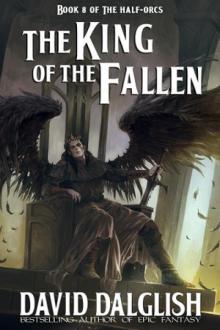 The King of the Fallen
The King of the Fallen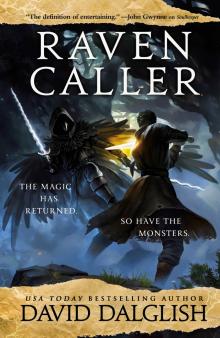 Ravencaller
Ravencaller Soulkeeper
Soulkeeper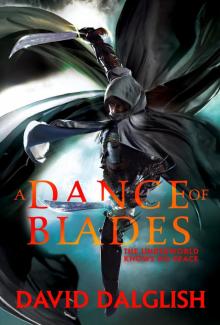 A Dance of Blades
A Dance of Blades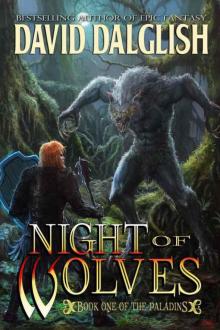 Night of Wolves p-1
Night of Wolves p-1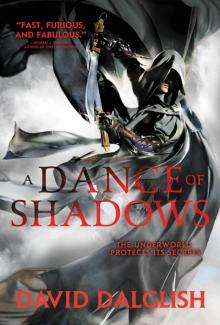 A Dance of Shadows
A Dance of Shadows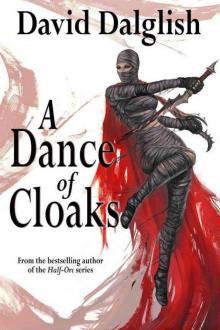 A Dance of Cloaks s-1
A Dance of Cloaks s-1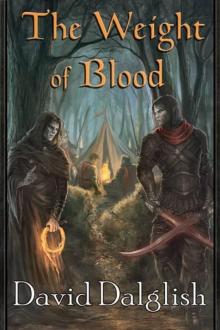 Weight of Blood
Weight of Blood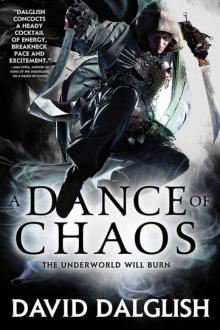 A Dance of Chaos
A Dance of Chaos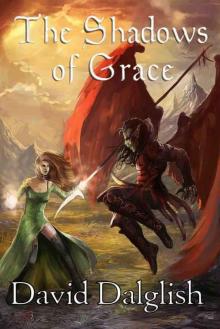 The Shadows of Grace h-4
The Shadows of Grace h-4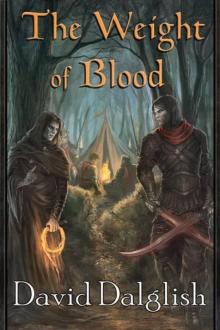 Weight of Blood h-1
Weight of Blood h-1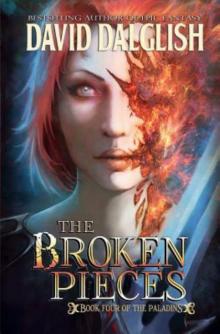 The Broken Pieces
The Broken Pieces The Shadowdance Trilogy
The Shadowdance Trilogy A Dance of Death (Shadowdance Trilogy, Book 3)
A Dance of Death (Shadowdance Trilogy, Book 3)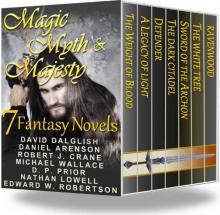 Magic, Myth & Majesty: 7 Fantasy Novels
Magic, Myth & Majesty: 7 Fantasy Novels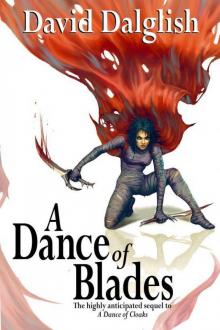 A Dance of Blades s-2
A Dance of Blades s-2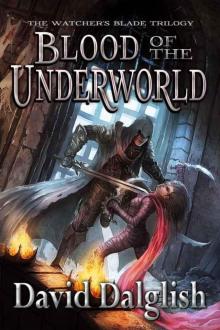 Blood of the Underworld
Blood of the Underworld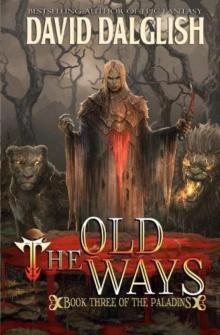 The Old Ways p-3
The Old Ways p-3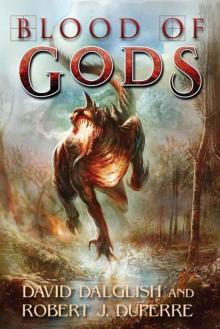 Blood Of Gods (Book 3)
Blood Of Gods (Book 3) Shadowborn
Shadowborn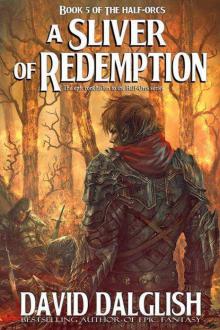 A Sliver of Redemption (Half-Orcs Book 5)
A Sliver of Redemption (Half-Orcs Book 5) Skyborn
Skyborn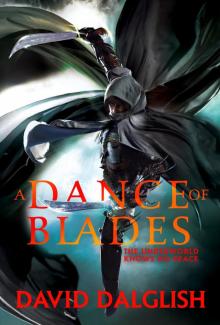 A Dance of Blades (Shadowdance 2)
A Dance of Blades (Shadowdance 2)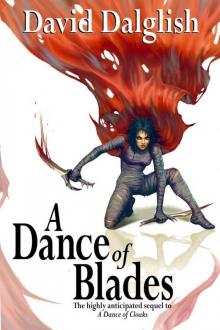 A Dance of Blades, (Shadowdance Trilogy, Book 2)
A Dance of Blades, (Shadowdance Trilogy, Book 2)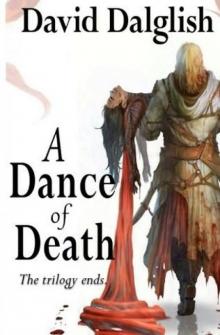 A Dance Of Death s-3
A Dance Of Death s-3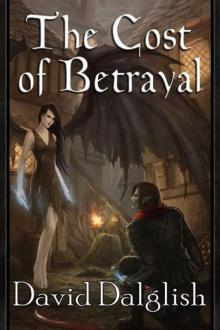 The Cost of Betrayal (Half-Orcs Book 2)
The Cost of Betrayal (Half-Orcs Book 2) Cloak and Spider: A Shadowdance Novella
Cloak and Spider: A Shadowdance Novella The Paladins
The Paladins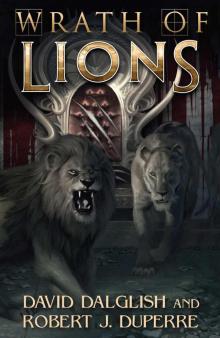 Wrath of Lions
Wrath of Lions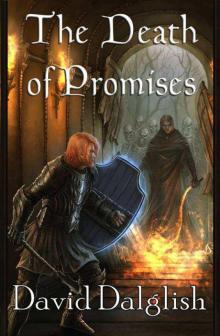 The Death of Promises (Half-Orcs Book 3)
The Death of Promises (Half-Orcs Book 3)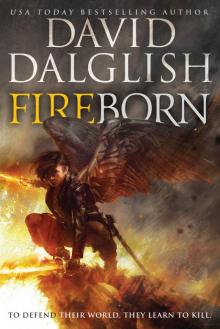 Fireborn
Fireborn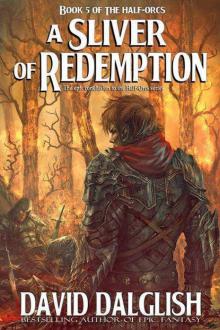 A Sliver of Redemption h-5
A Sliver of Redemption h-5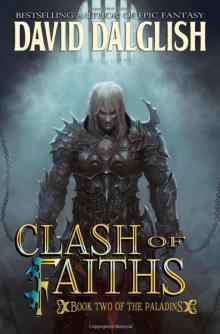 Paladins 02 - Clash of Faiths
Paladins 02 - Clash of Faiths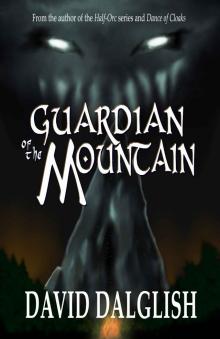 Guardian of the Mountain
Guardian of the Mountain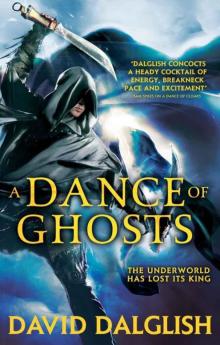 Shadowdance 05 - A Dance of Ghosts
Shadowdance 05 - A Dance of Ghosts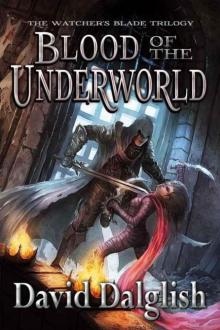 Blood of the Underworld twb-1
Blood of the Underworld twb-1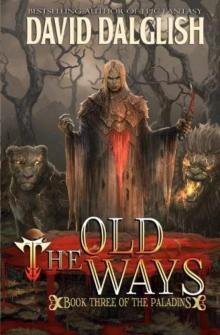 Paladins: Book 03 - The Old Ways
Paladins: Book 03 - The Old Ways Dawn of Swords
Dawn of Swords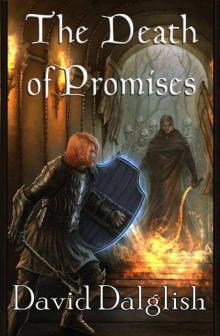 The Death of Promises h-3
The Death of Promises h-3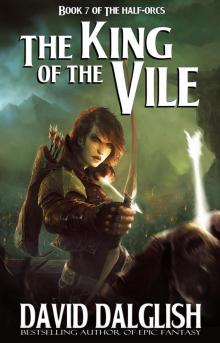 The King of the Vile
The King of the Vile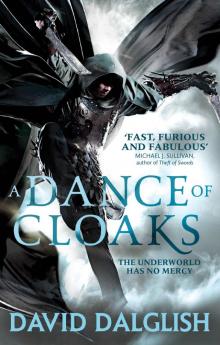 Shadowdance 01 - A Dance of Cloaks
Shadowdance 01 - A Dance of Cloaks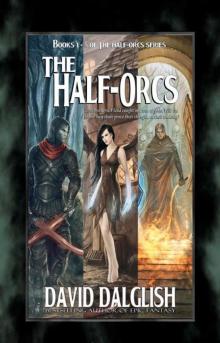 The Half-Orcs: Books 1-5
The Half-Orcs: Books 1-5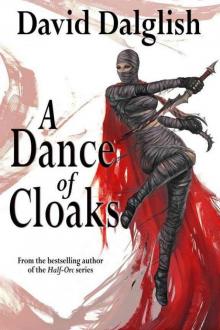 A Dance of Cloaks
A Dance of Cloaks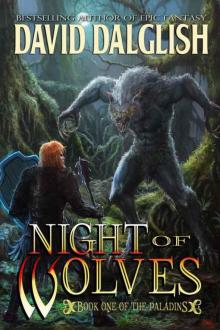 Paladins 01 - Night of Wolves
Paladins 01 - Night of Wolves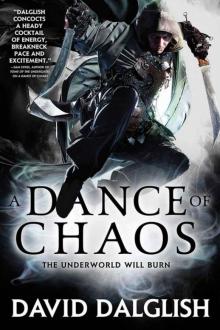 A Dance of Chaos: Book 6 of Shadowdance
A Dance of Chaos: Book 6 of Shadowdance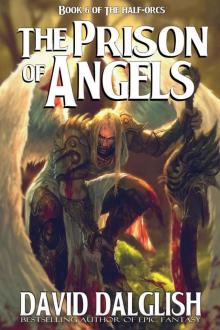 The Prison of Angels h-6
The Prison of Angels h-6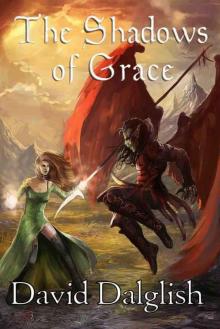 The Shadows of Grace (Half-Orcs Book 4)
The Shadows of Grace (Half-Orcs Book 4)